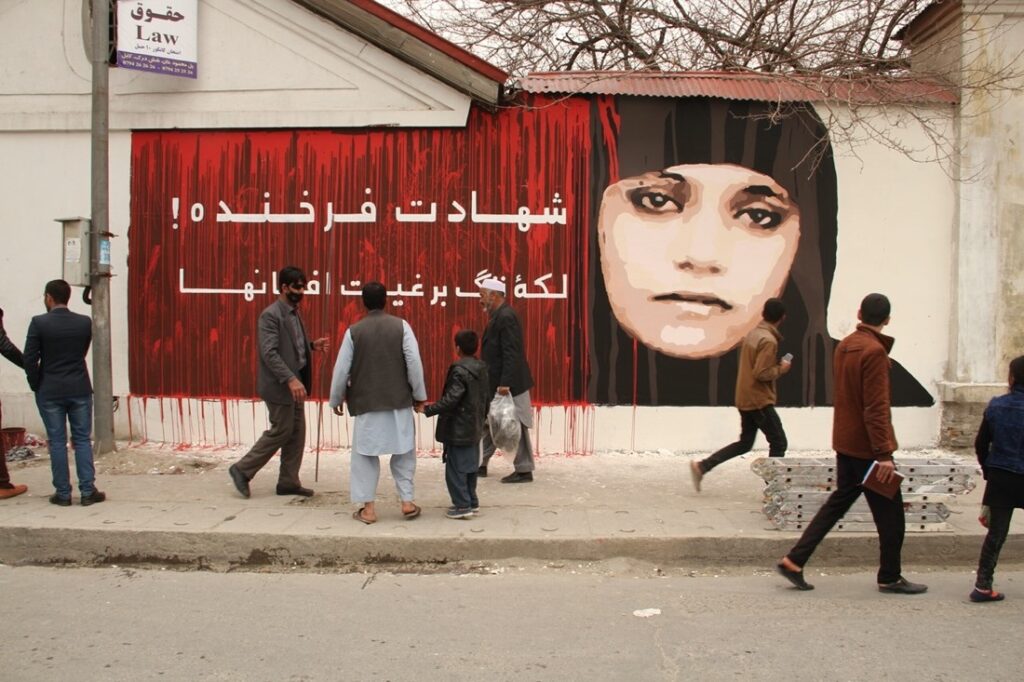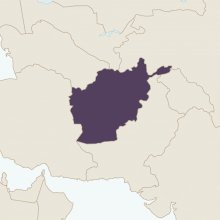
The face of Farkhunda Malikzada, lynched by an angry mob in 2015, confronts Kabul citizens near the site of her murder.
Thousands of Afghans who were evacuated from Kabul after the Taliban seized power in August could be stranded in other countries for years because of backlogs in the U.S. refugee system, according to officials and the groups that helped them escape, The Wall Street Journal reports:
One of the largest groups of evacuees outside of the U.S. military system is spread across Albania, Georgia and North Macedonia. They were brought there by the U.S.-government-funded National Endowment for Democracy, a foundation that aims to support the spread of democratic ideas. NED President Damon Wilson said his organization evacuated some 600 people to those nations. He is pressing the State Department to send mobile teams to screen and vet the Afghans in southeastern Europe so they can be moved to U.S. military bases overseas. RTWT

NDI
The main lesson to draw from the last twenty years of policy interventions in the country is that the EU adopted an overly superficial notion of democracy support and counterproductive security strategies, according to a new analysis.
As late as November 2020, the EU pledged another 1.2 billion euros (about $1.4 billion) in assistance, funding that was supposedly “conditional” on Afghanistan’s “continued commitment to democracy, the rule of law, human rights, and gender equality.” This link showed that the EU was still operating on the premise that Afghanistan’s reconstruction and democratization went together, when the reality on the ground made it abundantly clear this was not happening, says Oz Hassan, an associate professor in the Politics and International Studies Department at the University of Warwick.
The EU backed a shallow model of democracy that centralized the reconstruction project and legitimized top-down, elite-centric processes, he writes for the Carnegie Endowment:
The EU certainly supported many local democracy and governance projects, such as backing provincial council elections, an Independent Directorate of Local Governance, the UN’s Afghanistan Subnational Governance Programme, and myriad community councils.1 Yet these programs often empowered clientelistic networks of local elites that clashed with EU support for centralizing constitutional powers with elites in Kabul.
It is a mistake to argue that the principal goals in Afghanistan and Iraq were reflective of democracy promotion, according to Stanford University’s Larry Diamond. Democracy promotion involves the use of peaceful assistance at first, and partnerships and diplomacy, to try to encourage and support democratic change and institutionalization of constitutional mechanisms in a civil society, he told Democracy for the Arab World Now (DAWN).







